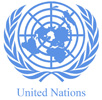General Assembly proclaims 2008 International Year of Languages
General Assembly proclaims 2008 International Year of Languages, in effort to promote Unity in Diversity, Global Understanding (GA/10592)

The General Assembly this afternoon, recognizing that genuine multilingualism promotes unity in diversity and international understanding, proclaimed 2008 the International Year of Languages.
Acting without a vote, the Assembly, also recognizing that the United Nations pursues multilingualism as a means of promoting, protecting and preserving diversity of languages and cultures globally, emphasized the paramount importance of the equality of the Organizationís six official languages (Arabic, Chinese, English, French, Russian and Spanish).
In that regard, the Assembly requested the Secretary-General to ensure that all language services were given equal treatment and were provided with equally favourable working conditions and resources. The Secretary-General was also requested to complete the task of publishing all important older United Nations documents on the Organizationís website in all six official languages, on a priority basis.
Further, the Assembly emphasized the importance of making appropriate use of all the official languages in all the activities of the Department of Public Information, with the aim of eliminating the disparity between the use of English and the use of the five other official languages.
Introducing the resolution (contained in document A/61/L.56), Franceís representative said the text would ensure a ďglobalĒ approach to multilingualism and would promote a reasonable vision of multilingualism at the United Nations. It would help ensure adherence to the principles of multilingualism in the Organizationís daily activities and, for the first time, would underline the importance of providing technical assistance and training in the local languages of beneficiary countries.
Speakers, among them the representatives of Tunisia, Andorra, Russian Federation, Romania and Senegal, stressed that multilingualism in the United Nations served to enrich the work of the Organization. Linguistic diversity was the foundation of cultural diversity. Without appropriate attention to the issue of preserving linguistic diversity, the harmonious integration of a growing number of countries in the practical work of the Organization would hardly be possible.
They welcomed the work of the Department of Public Information regarding multilingualism in electronic resources, as well as that of the United Nations information centres (UNICs) in disseminating information through local languages. Some speakers hoped the next resolution on multilingualism would include an explicit reference to the need for linguistic diversity in peacekeeping operations.
The Assembly was informed that any resource implications resulting from the resolution would be addressed in the Secretary-Generalís report to the sixty-third session of the Assembly on implementation of the resolution.
- Publication Date: 03-12-2007

